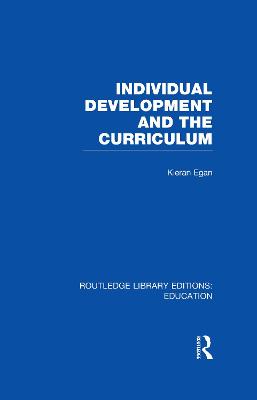Routledge Library Editions: Education
3 total works
This book describes four `layers' or stages of education - Mythic, Romantic, Philosophic and Ironic and shows how children at each stage most effectively learn, and how they can be helped towards educational maturity. While drawing on a wide range of philosophical and psychological literature, this new theory is primarily constructed from close observation of children in their common and intense imaginative engagements, and in everyday educational practice.

